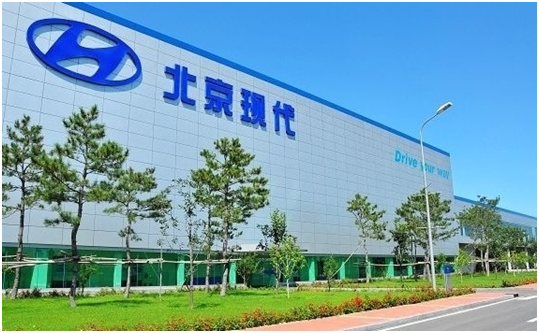
Hyundai Motor: 2 trillion won deficit in China: Annual sales halved
-Chinese corporation “Beijing Hyundai” to change business strategy-
Beijing Hyundai Achievements:
On March 10th, the Chinese corporation “Beijing Hyundai”
Last year’s sales were 6,872.9 billion won, half of the previous year’s (10,205.6 billion won).
Last year’s operating loss was 1,152 billion won, doubling from the previous year (523.4 billion won).
Dongfeng Yueda Kia:
The same is true for Dongfeng Yueda Kia.
amount of sales
It will decrease from 3,763.7 billion won in 2019 to 3,588.7 billion won in 2020.
Operating loss
It will double from 312 billion won in 2019 to 649.9 billion won in 2020.
Sales of both companies decreased for the fourth consecutive year.
Beijing Hyundai sales:
The number of units sold was also sluggish.
Last year, Hyundai and Kia sold a total of 664,744 units in China.
However, this decreased by 26.9% year-on-year.
Compared to 2016 (1,790,202 units), it is one-third the level in four years.
The market share, which exceeded 10% in the early 2010s, was 3.4% last year.
Industry insider:
Dealer incentives must be increased to reduce car sales.
There is no change in the “situation where business performance is repeatedly deteriorating.”
THAAD Retaliation:
For Hyundai Motor Kia, the slump in China began in “2017, when THAAD retaliation began in earnest.”
The boycotts of Korean products are widespread in China.
Joongang Ilbo
https://s.japanese.joins.com/JArticle/276421?sectcode=320&servcode=300
Hyundai-Kia Operating Losses in China Reach 2 Tril. Won in 2020
Hyundai Motor Co. and Kia Corp.
posted nearly 2 trillion won in operating losses in China in 2020.
It was the worst business performance since the two Korean carmakers entered China in 2002.
Their slumps in China
began in earnest in 2017 when China punished Korean companies to retaliate against South Korea’s deployment of the THAAD Missile System.
Many analysts
point out that the two Korean carmakers suffered sluggish sales as they failed to respond to the shift of Chinese consumers’ preference to sports utility vehicles (SUVs) and luxury cars.
Hyundai and Kia
were stuck in the middle between German and Japanese high-end brands and local Chinese brands, some industry watchers say.
Businesskorea
http://www.businesskorea.co.kr/news/articleView.html?idxno=62092